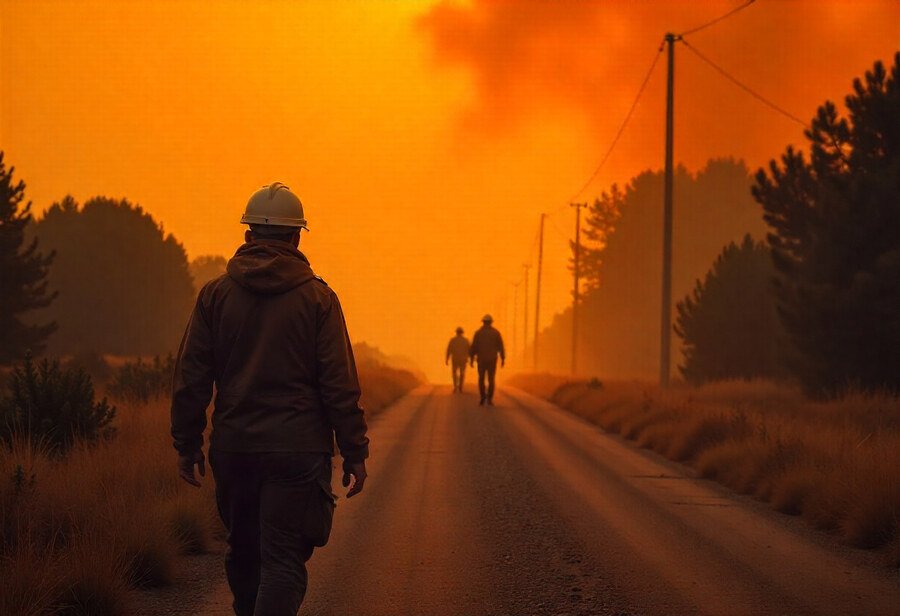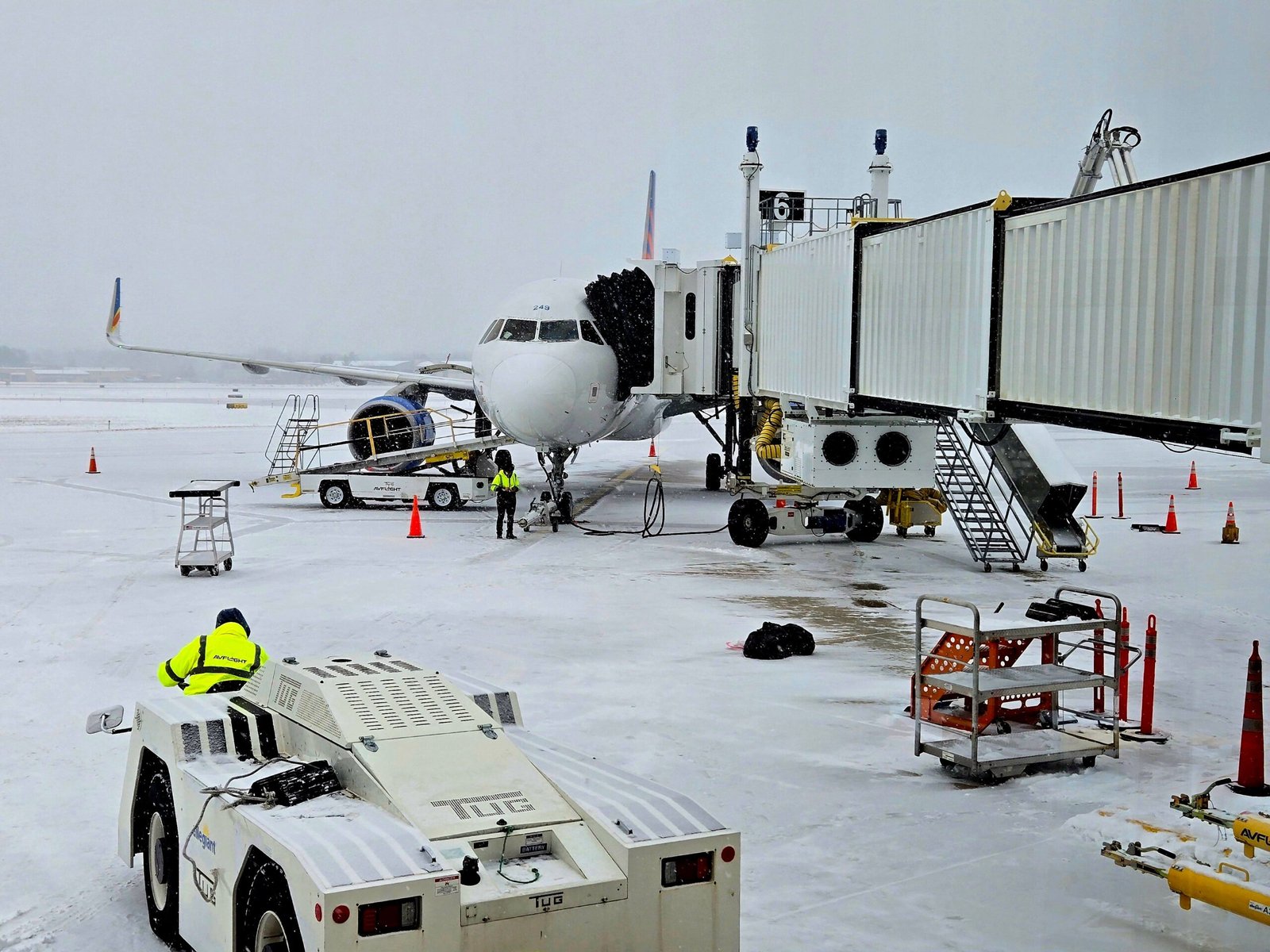Tips & Advices
Is Travel Insurance Worth It?

It’s easy to think you can save money by skipping travel insurance, but there are so many unexpected situations where it’s a lifesaver. Especially since the average cost of a one-week vacation in the U.S. is now more than $2,200 per person.
“Travel insurance is often an overlooked investment until the unforeseen happens,” says Beth Godlin, president of Aon Affinity Travel Practice. “It’s designed to give travelers peace of mind and financial protection against travel risks.”
Find out what travel insurance covers, how much it costs and if it’s the right choice for you.
What does travel insurance cover?
Travel insurance generally covers your expenses, your belongings and your well-being. When shopping for a policy, look for these benefits:
Trip cancellation
If your trip is canceled for a covered reason — including illness or injury, the death of a family member, job loss, deployment and even unplanned jury duty — trip cancellation coverage will reimburse airline tickets, hotel rooms, rental cars, tours, cruises and other prepaid, nonrefundable expenses.
Cancellations can also be covered if a natural disaster, severe weather or airline strike prevents your carrier from getting you to your destination for at least 24 hours.
Trip delay
Trip delay coverage pays for food, lodging and local transportation if a delay is due to severe weather, airline maintenance or civil unrest.
“For a traveler to be eligible, they must be delayed for the minimum amount of time listed on their policy,” said Squaremouth spokesperson Megan Moncrief. “Some policies are very lenient and provide benefits for any length delay, while others list a length requirement, usually somewhere between 3 to 12 hours.”
Daily payout limits range from $150 to $250 per traveler, according to Moncrief, while the total policy limit can be anywhere from $500 to $2,000. Save any receipts to submit with your reimbursement claim.
Trip interruption
Should you need to cut your trip short due to illness or injury — or if there’s a family emergency back home — your policy may reimburse non-refundable expenses you forfeited.
It may also cover the cost of a one-way economy airline ticket home.
Baggage delay
Your policy should cover toiletries, clothes and other essential items you need to buy if your bags are delayed for a certain amount of time. The benefit is usually capped at a specified dollar amount, either by day or total.
Baggage loss
Airlines are required to compensate passengers for luggage lost in transit, but a travel insurance policy may have a higher benefit limit. It could also cover you if your bags, passport or other possessions are lost, damaged or stolen once you’ve gotten to your destination.
Not every loss is covered, though: Cash is not reimbursable and many policies won’t reimburse for expensive jewelry. Read your policy carefully to see what is included.
Medical expenses and emergency evacuation
If you’re traveling abroad, your health insurance likely isn’t valid. Travel insurance should cover doctors’ fees and hospital bills, Durazo said, and the provider can help coordinate care and ensure you’re at a medical facility that is up to U.S. standards.
An emergency medical evacuation can cost anywhere from $15,000 to over $200,000, Durazo added.
What doesn’t travel insurance cover?
While each carrier has different exclusions, travel insurance companies typically don’t cover losses caused by:
- Negligence or illegal activities
- Pre-existing medical conditions (without a waiver)
- Known storms or outbreaks
- Fear of flying or travel
- Pregnancy
- War or civil unrest
- Dangerous activities like mountain climbing, bungee jumping or skydiving
- Reasonably foreseeable events
If bought early enough, usually within 14 to 21 days of booking, a Cancel For Any Reason policy allows you to call off your plans for any reason — including any of the above.
However, you must typically cancel at least 48 hours before departure. CFAR plans typically only reimburse 50% to 75% of your expenses, according to Allianz’s Daniel Durazo, and can bump up the cost by about 40%.
If your policy includes a waiver for pre-existing conditions, a chronic health condition may be covered, as well. You must buy coverage within 14 to 21 days of booking, insure 100% of your nonrefundable trip costs and be medically able to travel at the time of departure.
Certain conditions, including pregnancy, dementia, mental health conditions, and substance abuse issues, are not covered by a waiver.
How much does travel insurance cost?
A travel insurance policy typically costs between 4% and 10% of the prepaid, nonrefundable expenses associated with your trip.
The cost can vary, however:
- Plans with higher limits and more optional coverage cost more.
- A plan with a CFAR benefit can cost up to 40% more.
- Older travelers typically pay more because there’s more of a likelihood of a claim being filed.
Whichever plan you select, read the fine print so you understand what you’re paying for.
Top travel insurance companies
There are many great options in the travel insurance space: Aggregator site SquareMouth lets you get price quotes from dozens of carriers. Because it receives a commission from the insurance companies on its site, there’s no markup or extra fees.
SquareMouth Travel Insurance Marketplace
-
Policy highlights
SquareMouth is a travel insurance marketplace that allows you can compare top-rated providers, including Berkshire Hathaway, Nationwide, Seven Corners and Tin Leg.
-
24/7 assistance available
Pros
- Includes more than 30 travel insurance companies
- You can compare providers side-by-side on the website
- SquareMouth doesn’t add additional markups or fees
- Carriers that don’t adequately address a customer complaint are removed
Cons
- Doesn’t provide travel insurance policies of its own
American Express‘ standalone travel insurance policies offer protections not available as regular cardholder benefits — including emergency medical and dental coverage, medical evacuation and travel accident protection in cases of death or dismemberment.
American Express Travel Insurance
-
Policy highlights
Four standard plans and a build-your-own plan with travel interruption, trip cancellation, baggage and car rental protection. American Express card not required to purchase a policy.
-
Cancel For Any Reason coverage
AmEx does not offer CFAR coverage but Trip Cancel Guard reimburses up to 75% of nonrefundable flight costs up to 48 hours before departure
-
Pre-existing condition waiver
Available if policy is purchased within 14 days of initial trip deposit.
Pros
- Don’t need to be an AmEx cardholder to get coverage
- Emergency medical and travel accident protection offered
- 24-hour assistance available with all plans
Cons
- Basic rates higher than the competition
- Cancel For Any Reason benefit not available
- Trip Cancel Guard only reimburses flight costs
AIG’s Travel Guard® plans are great if you need to customize coverage: The mid-range Travel Guard Preferred plan pays out 100% for trip cancellation and 150% for trip interruption, with up to $50,000 in coverage for medical expenses and up to $500,000 for emergency evacuation. There’s even a payout of up to $1,000 if you miss your connection.
AIG Travel Guard® Travel Insurance
-
Policy highlights
AIG Travel Guard offers Essential, Preferred and Deluxe plans, as well as an annual plan and Pack N’ Go plan for same-day travel. Add-ons include coverage for rental vehicles, pets, adventure sports and wedding cancellations
-
Cancel For Any Reason coverage
Add-on to Preferred and Deluxe plans reimbursing 50% of trip costs if purchased within 15 days of initial deposit.
-
Pre-existing condition waiver
Available with any plan purchased within 15 days of initial trip deposit
Pros
- Adult policies include coverage for one child under 17
- Travel delay benefit of $1,000 is available after five-hour delay.
- Medical care and evacuation limits can be doubled
Cons
- Cancel For Any Reason policies only reimburse up to 50%
- Standard medical coverage limit lower than some competitors
- Not all products are available for purchase online
Faye is an all-online provider with an intuitive app that allows your to file claims completely digitally. It also has the most generous limits for travel delay coverage of any company we’ve reviewed — up to $300 a day and $4,500 per trip standard.
- $4,500 per person trip delay coverage after six hours.
- 100% digital claims process
- Can add coverage for pet care and vacation rental damage
- Only one plan is available
- Rates are higher than some competitors
Is travel insurance worth it?
While government regulations are becoming increasingly stringent about compensating travelers for delayed or canceled flights, limits on reimbursement may still be less than what you spent. And if the airline isn’t to blame, you won’t be covered.
“When deciding if travel insurance is right for you, ask yourself how much you could stand to lose if you had to cancel at the last minute,” Godlin said.
Travel insurance can be particularly useful if:
- You’ve spent a lot on prepaid, nonrefundable expenses
- You’re traveling internationally, where your health insurance won’t apply
- You’re traveling to a remote area or for an extended period
- You have a pre-existing health condition
- You’ve scheduled adventure activities such as skiing, bungee jumping or hang-gliding
- Your flight involves multiple connections or destinations
Travel insurance FAQs
What does travel insurance cover?
Policies vary, but most comprehensive plans cover travel cancellation and interruption, baggage delay and loss, medical care and emergency transportation.
How much does travel insurance cost?
While the price varies by provider, most policies cost between 4% and 10% of the trip’s prepaid, non-refundable expenses.
When should I get travel insurance?
You can usually buy travel insurance up until 24 hours before your departure but it’s best to take out a policy as early as possible. Some benefits, including Cancel For Any Reason plans and pre-existing medical condition waivers, require you to buy a plan no more than 14-21 days after making your initial deposit.
Does travel insurance cover COVID-19?
Subscribe to the CNBC Select newsletter!
Money matters — so make the most of it. Get expert tips, strategies, news and everything else you need to maximize your money, right to your inbox. Sign up here.
Meet our experts
At CNBC Select, we work with experts with specialized knowledge and authority. For this story, we interviewed Beth Godlin, president of Aon, which provides custom travel insurance for tour operators, cruise lines, travel websites and others. We also spoke with former Squaremouth Megan Moncrief and Allianz communications director Daniel Durazo.
Why trust CNBC Select?
At CNBC Select, our mission is to provide our readers with high-quality service journalism and comprehensive consumer advice so they can make informed decisions with their money. Every insurance article is based on rigorous reporting by our team of expert writers and editors. While CNBC Select earns a commission from affiliate partners on many offers and links, we create all our content without input from our commercial team or any outside third parties, and we pride ourselves on our journalistic standards and ethics.
Catch up on CNBC Select’s in-depth coverage of credit cards, banking and money, and follow us on TikTok, Facebook, Instagram and Twitter to stay up to date.
Editorial Note: Opinions, analyses, reviews or recommendations expressed in this article are those of the Select editorial staff’s alone, and have not been reviewed, approved or otherwise endorsed by any third party.
Tips & Advices
Greece Crucial Safety Tips for UK Tourists Navigating the Escalating Wildfire Threat This Summer : You Need to Know

Sunday, August 3, 2025
Greece is heading towards another summer fire season which will put its inhabitants and holidaymakers – particularly from the UK – to serious risk. Hotter temperatures contribute to dry conditions and make the country a top destination for wildfires, which can escape control and enter travel areas with little notice. With UK tourists planning or wanting to plan their visit, it is important that the safety measures and how to deal with these risks are kept in mind. This guide is filled with resources on what to do before visiting, how to stay safe during your vacation from registering for emergency alerts to recognizing wildfire-prone areas and making sure your summer trip provides only good memories.
Greece is a renowned vacation spot for travelers, especially from the UK, but the country faces significant natural disaster risks, making it essential for visitors to stay informed and prepared. Earthquakes, floods, and wildfires are common in Greece, and these events have caused widespread damage to communities and disrupted travel plans in recent years. With the summer months being particularly dangerous, travelers need to heed advice and take precautions to stay safe.
Understanding Greece’s Natural Disaster Risks
Greece’s geographic location, nestled in the Mediterranean, makes it prone to natural hazards. Earthquakes occur frequently in the region, as it lies on several seismic fault lines. Furthermore, Greece’s dry, hot summers create ideal conditions for wildfires, which can spread rapidly and are often difficult to predict. Floods can also occur, though they are typically associated with the winter months. Given the variety of these potential hazards, the country poses unique risks for visitors, especially from April to October.
Wildfires: A Major Concern for Tourists
Among the various natural disasters, wildfires are a particular concern for tourists traveling during the summer. The dry conditions, combined with high temperatures, make many parts of Greece highly susceptible to fires, which can escalate quickly. The UK Foreign Office has consistently highlighted the increased likelihood of wildfires during the summer months, particularly from April through October. These wildfires can quickly become uncontrollable, leaving both locals and tourists at risk.
Recent years have seen several large fires that ravaged popular tourist destinations, including areas in Crete, the Peloponnese, and Evia. This risk is compounded by the fact that wildfires can spread unpredictably, endangering regions that were once considered safe.
How to Stay Safe: Emergency Alerts and Preparedness
To safeguard against the threat of wildfires, travelers are advised to activate emergency alert systems in their mobile devices. The Greek government offers an Emergency Communication Service that sends out crucial notifications about natural disasters, including wildfires. Travelers should ensure they receive these alerts for real-time updates. Here’s how to activate the emergency alerts on your device:
For iPhone users: Navigate to the Settings app, tap on Notifications, and activate Emergency Alerts.
For Android users: Open Settings, select Notifications, then go to Advanced Settings and toggle on Wireless Emergency Alerts.
For Samsung users: Access Settings, choose Apps, then Messages, and under Notifications, ensure Emergency Notifications are enabled.
By enabling these alerts, travelers will be notified promptly if they are in an area where wildfires or other disasters are threatening.
Regions Most at Risk for Wildfires
While wildfires can affect any region of Greece, some areas are particularly vulnerable due to their geography and vegetation. Areas such as Crete, the Peloponnese, Evia, and parts of western and central Greece are well-known for their high wildfire risk. These regions are home to dense forests and dry terrain that provide the ideal conditions for fires to spread.
Tourists staying in these areas should be extra cautious. If you’re in a wildfire-prone area, it’s crucial to follow all local safety guidelines and stay informed through alerts. If a fire breaks out, evacuation orders can change rapidly, so it’s important to be prepared to act quickly.
What to Do in Case of Wildfire or Other Emergencies
Should you find yourself in a situation where wildfires or other natural disasters pose a threat, the following actions can help ensure your safety:
Adhere to Local Authorities: Always follow the instructions and directives provided by local emergency response teams. These professionals will provide instructions on evacuation routes and other necessary actions to take during a disaster.
Contact Emergency Services: In case of immediate danger, dial 112, the emergency number in Greece, for assistance from police, fire, or medical services.
Reach Out to Your Travel Provider: If you’re stranded or unable to leave the affected area, get in touch with your airline or travel operator. They can assist with rescheduling flights or arranging other travel logistics.
Stay Informed and Alert: Keep monitoring local news and emergency alerts to stay updated on the situation. If evacuation orders are issued, follow them immediately and avoid waiting for conditions to worsen.
As Greece faces an escalating wildfire threat this summer, UK tourists must take crucial safety precautions, including registering for emergency alerts and staying informed about fire-prone areas to ensure a safe trip.
Conclusion: Ensure a Safe Visit to Greece
Greece is consistently one of the best places to go for a holiday, from beautiful scenery and loads of history, to a rich culture. Still, the risk of natural disasters, particularly wildfires, necessitates vigilance and preparedness for visitors to keep safe. Travelers must prepare for alerts to disasters such as wildfires via preparedness and registering to receive emergency alerts, being cautious and following the local safety instructions should action need be taken during daylight hours.
By following these precautions, travelers can have fun and safe stay in Greece while avoiding all the dangers that are related to natural elements of this country. By being proactive and keeping an eye out for potential threats, you can avoid the things that could derail what should otherwise be a memorable experience in Greece.
Tips & Advices
Why I Buy Travel Insurance, Even With Great Credit Card Perks

Advertiser Disclosure
Many of the credit card offers that appear on this site are from credit card companies from which we receive financial compensation. This compensation may impact how and where products appear on this site (including, for example, the order in which they appear). However, the credit card information that we publish has been written and evaluated by experts who know these products inside out. We only recommend products we either use ourselves or endorse. This site does not include all credit card companies or all available credit card offers that are on the market. See our advertising policy here where we list advertisers that we work with, and how we make money. You can also review our credit card rating methodology.
Tips & Advices
Top 5 Travel Insurance Options for Costa Rica Trips [Full Comparison] – Upgraded Points
-

 Brand Stories2 weeks ago
Brand Stories2 weeks agoBloom Hotels: A Modern Vision of Hospitality Redefining Travel
-

 Brand Stories1 week ago
Brand Stories1 week agoCheQin.ai sets a new standard for hotel booking with its AI capabilities: empowering travellers to bargain, choose the best, and book with clarity.
-

 Destinations & Things To Do2 weeks ago
Destinations & Things To Do2 weeks agoUntouched Destinations: Stunning Hidden Gems You Must Visit
-

 Destinations & Things To Do1 week ago
Destinations & Things To Do1 week agoThis Hidden Beach in India Glows at Night-But Only in One Secret Season
-

 AI in Travel2 weeks ago
AI in Travel2 weeks agoAI Travel Revolution: Must-Have Guide to the Best Experience
-

 Brand Stories4 weeks ago
Brand Stories4 weeks agoVoice AI Startup ElevenLabs Plans to Add Hubs Around the World
-

 Brand Stories3 weeks ago
Brand Stories3 weeks agoHow Elon Musk’s rogue Grok chatbot became a cautionary AI tale
-

 Asia Travel Pulse4 weeks ago
Asia Travel Pulse4 weeks agoLooking For Adventure In Asia? Here Are 7 Epic Destinations You Need To Experience At Least Once – Zee News
-

 AI in Travel4 weeks ago
AI in Travel4 weeks ago‘Will AI take my job?’ A trip to a Beijing fortune-telling bar to see what lies ahead | China
-

 Brand Stories4 weeks ago
Brand Stories4 weeks agoChatGPT — the last of the great romantics













